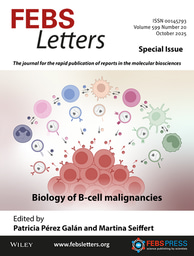Special Issue: Immunity and Metabolism

A narrow focus and ignorance of other fields or biological processes is a common danger in scientific research. This reductionist approach is useful to understand molecular or even atomic details of processes, but fails to provide answers to complex biological questions and diseases.
Two major fields of research, immunity and metabolism, have been developing largely isolated from each other until recent years. These disciplines have been traditionally residing in different university departments and taught from different textbooks with little or no cross references.
However, key advances have linked these areas inseparably by now, and allowed researchers solely focused on immunological problems to address issues related to chronic metabolic diseases, and scientists interested in the intricacies of metabolic regulation to work on unresolved puzzles of the immune system. The cross fertilization of immunology by metabolism, and metabolism by inflammation and immunity, tremendously broadened our horizon and provided new testable models and hypotheses regarding the origin and progression of metabolic diseases such as morbid obesity, diabetes, atherosclerosis, and cardiovascular disease. Similarly, the unraveling of metabolic processes underpinning or governing immune cell activation, differentiation into effector cells, and regulation of their function, holds promise to influence chronic inflammatory diseases as well as tumor growth and progression.
In this Special Issue, we cannot cover all the interesting advances and developments of this emerging field; rather, we chose to focus on selected areas.
One of the foci of this issue is macrophage biology. Macrophages are versatile, multitasking and very plastic components of the innate immune system. One can look at them as the Swiss Army Knife of the body. They are present in virtually every tissue and can also be recruited to all parts of the body during inflammation. Their immunophenotype and effector functions are determined by the tissue milieu they reside in, and influenced by metabolic processes. On the one hand, we have reviews dissecting the basic molecular or metabolic processes at work in macrophages such as transcriptional repression [1], nuclear receptor action [2], and the effect of the Krebs cycle [3]. On the other, we present reviews looking at the interaction of metabolism and macrophage biology in physiological and pathological processes such as normal skeletal muscle regeneration [4], tumor progression [5], and atherosclerosis [6]. Along these lines, Desvergne and colleagues discuss the concept of metaflammation, and the pathological interaction of metabolism and inflammation in the liver and the adipose tissue [7].
Another hot topic is the regulation of T-cell activation and T-cell effector differentiation. A close-up on the role of the mTORC signaling pathway in innate and adaptive immune cell regulation and function is presented by Weichhart and colleagues [8]. In addition, we have reviews analyzing how metabolic pathways govern T-cell function [9], as well as the link between immunometabolism and human autoimmunity [10]. Finally, Molinier-Frenkel and Castellano [11] discuss the role of immunosuppressive enzymes as feedback mechanism in the metabolic competition between antitumor T lymphocytes and tumor cells.
We hope that this compilation of reviews will provide the readers with a sense of interrelatedness between these two areas of research and also demonstrate that fusion between seemingly disparate areas can open up entirely new avenues for research as well as for therapies. Much more needs to be discovered though. Interorgan communication is likely to be a hot topic in the future, and new technologies, such as measurements of metabolic flux, will add another dimension to our understanding of immunity and metabolism. No doubt the discussion will continue.
- Treuter E, Fan R, Huang Z, Jakobsson T and Venteclef N (2017) Transcriptional repression in macrophages: basic mechanisms and alterations in metabolic-inflammatory diseases. FEBS Lett 591, 2959–2977.
- Schulman IG (2017) Liver X receptors link lipid metabolism and inflammation. FEBS Lett 591, 2978–2991.
- Ryan DG and O'Neill LAJ (2017) Krebs cycle rewired for macrophage and dendritic cell effector functions. FEBS Lett 591, 2992–3006.
- Juban G and Chazaud B (2017) Metabolic regulation of macrophages during tissue repair: insights from skeletal muscle regeneration. FEBS Lett 591, 3007–3021.
- Rabold K, Netea MG, Adema GJ and Netea-Maier RT (2017) Cellular metabolism of tumor-associated macrophages – functional impact and consequences. FEBS Lett 591, 3022–3041.
- Bories GFP and Leitinger N (2017) Macrophage metabolism in atherosclerosis. FEBS Lett 591, 3042–3060.
- Caputo T, Gilardi F and Desvergne B (2017) From chronic overnutrition to metaflammation and insulin resistance: adipose tissue and liver contributions. FEBS Lett 591, 3061–3088.
- Linke M, Fritsch SD, Sukhbaatar N, Hengstschläger M and Weichhart T (2017) mTORC1 and mTORC2 as regulators of cell metabolism in immunity. FEBS Lett 591, 3089–3103.
- Yong CS, Mousatpha Moussa Abba D, Cretenet G, Kinet S, Dardalhon V and Taylor N (2017) Metabolic orchestration of T lineage differentiation and function. FEBS Lett 591, 3104–3118.
- de Candia P, De Rosa V, Gigantino V, Botti G, Ceriello A and Matarese G (2017) Immunometabolism of human autoimmune diseases: from metabolites to extracellular vesicles. FEBS Lett 591, 3119–3134.
- Molinier-Frenkel V and Castellano F (2017) Immunosuppressive enzymes in the tumor microenvironment. FEBS Lett 591, 3135–3157



Join the FEBS Network today
Joining the FEBS Network’s molecular life sciences community enables you to access special content on the site, present your profile, 'follow' contributors, 'comment' on and 'like' content, post your own content, and set up a tailored email digest for updates.